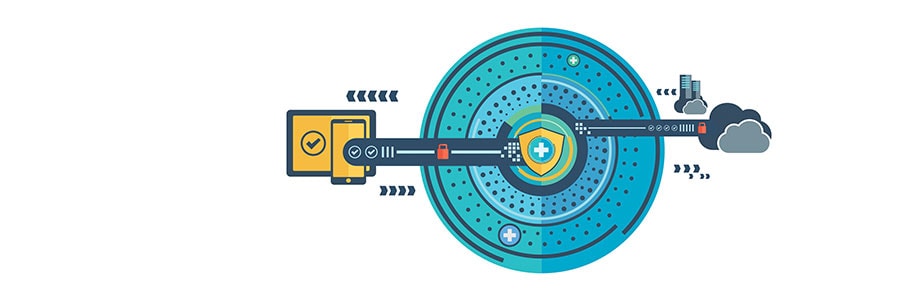If your managed IT services provider has been using the same business continuity plan (BCP) for years, your organization may be in trouble. BCPs should continuously be updated so you avoid overlooking or underestimating certain issues. Not updating your BCP is just one mistake that can harm your business.
The pitfalls of business continuity planning
How to be proactive with your cyber defenses

It is good to have an IT team and/or a third-party partner like a managed services provider (MSP) that helps keep your company protected against cyberthreats. It is even better to have all stakeholders be involved in preventing data breaches. Here’s how everyone can be proactive when it comes to cybersecurity.
Microsoft 365 features that prevent phishing

Over the years, Microsoft has built a reputation as a provider of powerful and intuitive tools that enhance efficiency and productivity. The company is also continuously taking steps to protect their users from today’s top cyberthreats. A great example of this is Microsoft 365, which is well equipped to combat phishing scams.
Here are 4 ways your business can get ahead of the tech curve

The key to finding competitive advantage is by embracing innovation. So no matter how trivial or whimsical a technological development may seem, you’ll want to keep an open mind about what it can do for you. But for a small company, what does “embracing innovation” actually entail? Read on to learn more.
Here’s why you need a VPN and how to choose one

Installing antivirus software and using strong passwords are no longer considered the bare minimum in cybersecurity. With your online activities transparent to internet service providers, third parties, and hackers alike, it’s important to keep your information secure and private by using a virtual private network (VPN). Here’s why.
Make the most out of Microsoft Word with these tips

Microsoft Word remains the word processing software of choice for businesses large and small. With Word, you can create a wide variety of documents, from reports to invoices to brochures. Word also has a number of features that, when utilized properly, could greatly enhance your productivity and efficiency at work.
How automation boosts your small business’s marketing
Surefire ways to protect your email account

If you think your email is safe from hackers, think again. A lack of sufficient email security protocols can lead to data theft, unauthorized access to sensitive information, and successful malware attacks. Here are some tips to secure your email account from unwanted intruders and the many troubles that come with them.
Groups, Yammer, and Teams: When should you use them?

While most Microsoft 365 apps serve a particular purpose, tools like Outlook Groups, Yammer, and Microsoft Teams can all be used for office communication and collaboration. However, there are a few small differences. Read on to learn more.
Outlook Groups
With Outlook Groups, every member gets a shared inbox, calendar, project planner, notebook, and document library.



